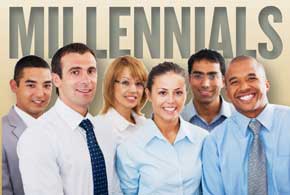
What to Expect From Millennials in the Workplace
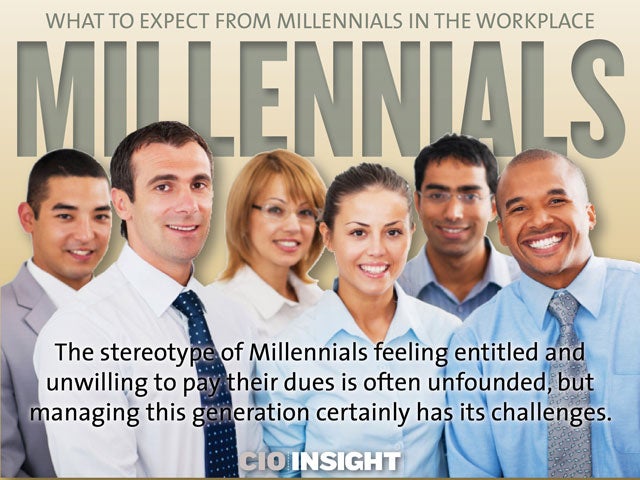 What to Expect From Millennials in the Workplace
What to Expect From Millennials in the Workplace
The stereotype of Millennials feeling entitled and unwilling to pay their dues is often unfounded, but managing this generation certainly has its challenges.
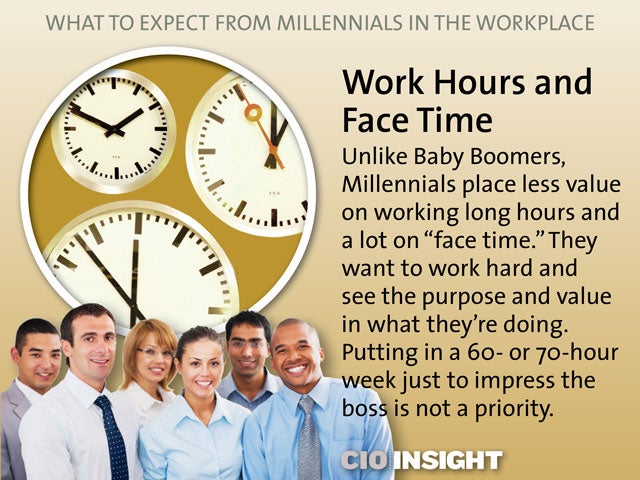 Work Hours and Face Time
Work Hours and Face Time
Unlike Baby Boomers, Millennials place less value on working long hours and a lot on “face time.” They want to work hard and see the purpose and value in what they’re doing. Putting in a 60- or 70-hour week just to impress the boss is not a priority.
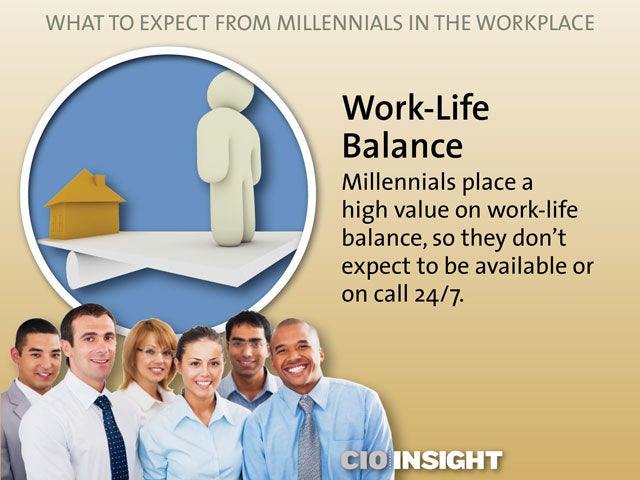 Work-Life Balance
Work-Life Balance
Millennials place a high value on work-life balance, so they don’t expect to be available or on call 24/7.
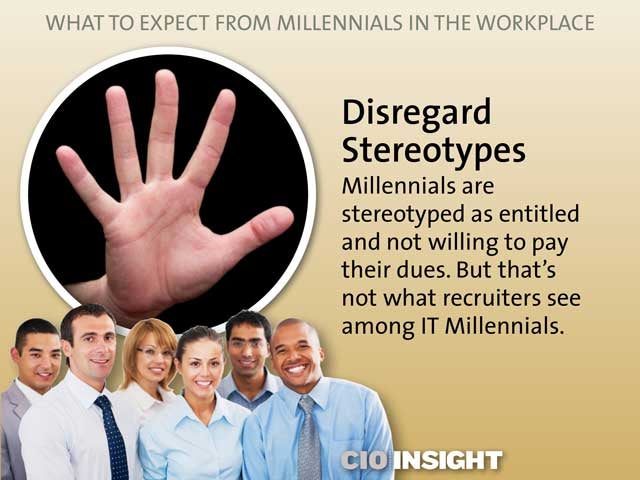 Disregard Stereotypes
Disregard Stereotypes
Millennials are stereotyped as entitled and not willing to pay their dues. But that’s not what recruiters see among IT Millennials.
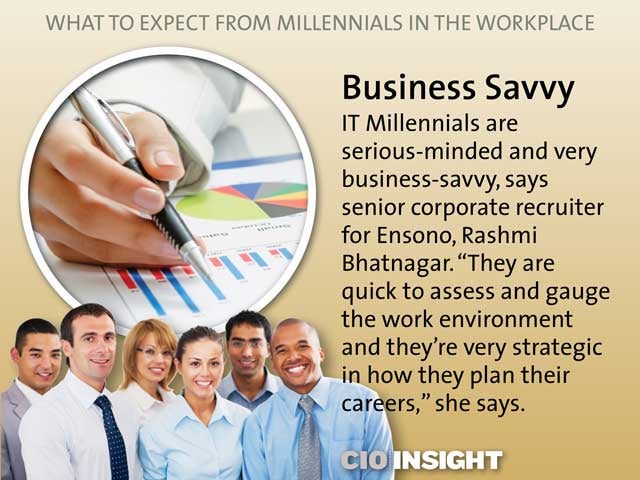 Business Savvy
Business Savvy
IT Millennials are serious-minded and very business-savvy, says senior corporate recruiter for Ensono, Rashmi Bhatnagar. “They are quick to assess and gauge the work environment and they’re very strategic in how they plan their careers,” she says.
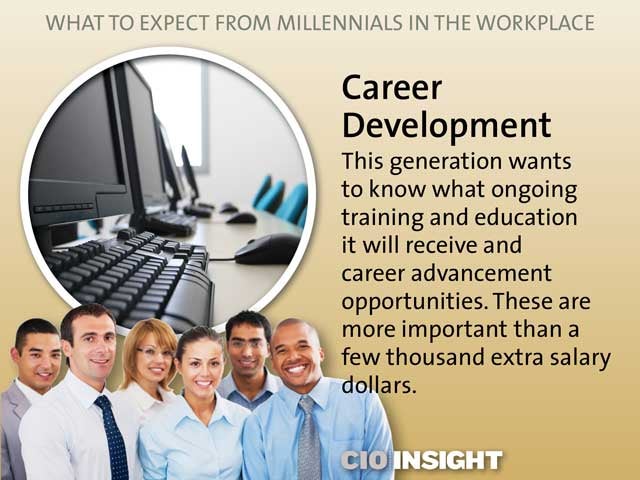 Career Development
Career Development
This generation wants to know what ongoing training and education it will receive and career advancement opportunities. These are more important than a few thousand extra salary dollars.
 Give Them a Voice
Give Them a Voice
Give Millennials a say in choosing what projects they will work on and offer them flexibility. Let them help determine which tasks will best accomplish goals.
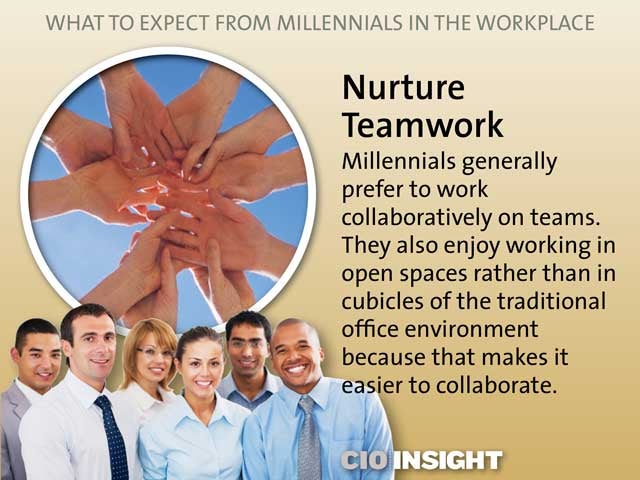 Nurture Teamwork
Nurture Teamwork
Millennials generally prefer to work collaboratively on teams. They also enjoy working in open spaces rather than in cubicles of the traditional office environment because that makes it easier to collaborate.
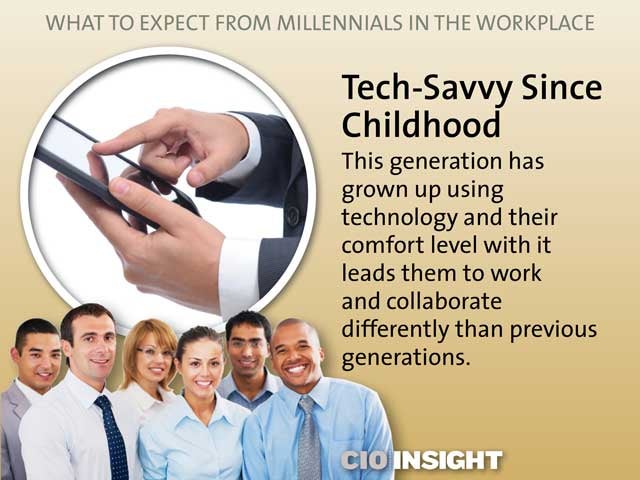 Tech-Savvy Since Childhood
Tech-Savvy Since Childhood
This generation has grown up using technology and their comfort level with it leads them to work and collaborate differently than previous generations.